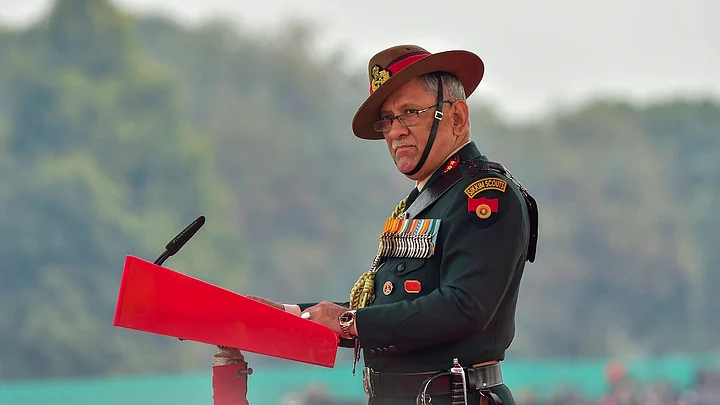While the nation mourns the tragic death of Chief of Defence Staff Bipin Rawat, there are uncertainties about who will succeed him and how that process of succession is supposed to take place.
General Rawat was the 27th Chief of Army Staff before being appointed as the first CDS of the country on 1 January 2020.
By virtue of being the first man to hold the post, the General's sudden demise has left a void in the armed forces that is difficult to fill, not just because of the decorated career of CDS Rawat, but also because of the nature of the post that he held.
Understanding the Post of CDS
The post was first suggested by the Kargil Review Committee, set up under the Vajpayee government three days after India's famous victory in the 1999 Kargil War.
Among the many recommendations of the committee was the need to fix the lack of coordination between the Army, the Navy, and the Air Force.
Prime Minister Narendra Modi, 20 years after the recommendations were made, announced in his 2019 Independence Day speech that his government had agreed to create a post titled Chief of Defence Staff of the Indian Armed Forces.
The holder of this post, for the purposes of better coordination and service effectiveness would lead the committee (Chiefs of Staff Committee or the CoSC)consisting of the chiefs of the Indian Army, the Indian Navy, and the Indian Air Force.
The Cabinet Committee on Security formally announced the post on 24 December 2019, and named the late General Rawat as its first holder.
The four-star general officially took over on 1 January 2020.
The CDS simultaneously holds several key posts - the secretary of the Department of Military Affairs (that falls within the Defence Ministry), the Principal Advisor to the Defence Minister, and as discussed above, the Chairman of the Chiefs of Staff Committee.
It is important to note that the responsibility of coordinating the services between the Army, Navy, and Air Force originally lay with the DMA, but with the creation of the CDS, General Rawat became responsible for jointness in "operations, logistics, transport, training, support services, communications, repairs and maintenance of the three Services", The Hindu reported.
'Bureaucracy Related to Military'
While the CDS is a military officer, he also functions like a bureaucrat due to his close association with the central government.
This combination makes the succession process a bit tricky.
With no direct line of succession, that is, nobody to replace him as directed by the rules of military hierarchy, General Rawat's successor will be appointed the civilian leadership.
The basis of the lack of clarity lies in the fact that the late CDS was "not in active military service, but parts of bureaucracy related to the military, which were looked after by the civilian bureaucracy, was handed over to the DMA and the CDS as its secretary", according to an anonymous defence ministry official as reported by The Indian Express.
The senior-most service chief in the combined armed forces, before the post of the CDS was created, was the chairman of CoSC.
That person, in light of the tragic passing of General Rawat, is the current Chief of the Indian Army Staff, General Manoj Mukund Naravane, whose career in the military has spanned over 40 years.
The other frontrunner to succeed General Rawat is Air Marshal B R Krishna, who is currently the Chief of Integrated Defence Staff to the Chairman, Chiefs of Staff Committee.
The announcement about the succession is expected to be made in the next 7-10 days.
Prime Minister Narendra Modi on Wednesday chaired a meeting of the Cabinet Committee on Security, which was also attended by several Rajnath Singh, Amit Shah, Nirmala Sitharaman, and S Jaishankar.
National security advisor (NSA) Ajit Doval was also present at the meeting.
(With inputs from The Hindu and The Indian Express)
(At The Quint, we question everything. Play an active role in shaping our journalism by becoming a member today.)
